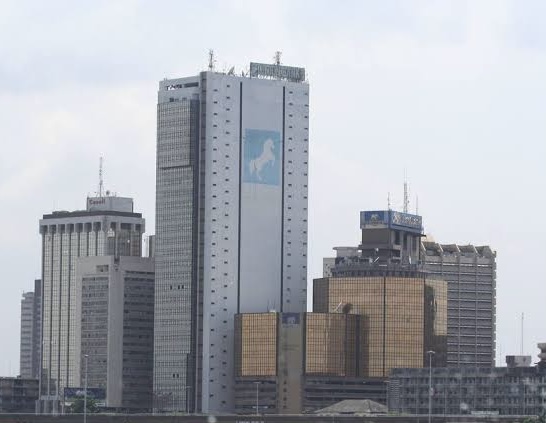
Nigeria’s electricity distribution sector sits at the frontline of the nation’s power value chain. The country’s eleven distribution companies (DisCos) bear the dual challenge of satisfying millions of customers and meeting stringent operational targets, all while managing vast, dispersed workforces. While regulatory performance metrics—loss reduction, collections, metering—are routinely in the public eye, far less is known about what it is like to work within these organisations. Yet, employee experience is central to how well DisCos deliver on their mandate.
Drawing on publicly available reviews from platforms like Glassdoor and Indeed as at August 13, 2025, this comparative analysis examines each DisCo’s HR strengths and weaknesses. While sample sizes vary considerably, the insights offer a useful snapshot of trends shaping workforce satisfaction in this critical sector.
Summary of Public Employee Review Scores
| DisCo (A–Z) | Overall ★ (5=max) | Recommend | Reviews | Notable employee themes |
| Abuja (AEDC) | 3.3 | 57% | ~55 | Balanced mix of positive and critical feedback; good work environment in parts, but pay and promotion systems seen as needing reform. |
| Benin (BEDC) | 2.7 | — | ~116 | High operational pressure and target-driven culture; pay/benefits cited as weak. |
| Eko (EKEDC) | 3.3 | ≈81–82% | ~100 | High recommend rate; strong job security; some politics in career advancement. |
| Enugu (EEDC) | 2.4 | 35% | ~50 | Lower ratings for pay and work–life balance; recognition for timely salaries. |
| Ibadan (IBEDC) | 3.1 | — | ~81 | Young, energetic workforce; recurring issues over low pay and workload balance. |
| Ikeja (IE) | 3.4 | ≈68–69% | ~391 | Large, structured organisation with career growth potential; sector-typical workload pressures. |
| Jos (JED) | 3.2 | 52% | ~12 | Small review pool; mix of positive learning experiences and role clarity issues. |
| Kaduna Electric | 2.8 | — | ~21 | Noted for project opportunities; concerns over welfare, safety, and pay. |
| Kano (KEDCO) | 3.0 | 55% | ~20 | Flexible working in some roles; slow career progression cited. |
| Port Harcourt (PHED) | 3.0 | 40% | ~68 | Split views: some value training and safety; others see management style as rigid. |
| Yola (YEDC) | — | — | very few | Sparse online presence; scattered remarks on outdated systems and service commitment. |
When looking across Nigeria’s DisCos, the most immediate impression is the wide variation in employee sentiment. The overall ratings range from 2.4 to 3.4 out of 5, with an average close to 3.0—a “mixed” performance in workplace satisfaction terms. The recommend-to-a-friend rate, available for most companies, hovers around 55%, though standout performers like Eko Electricity Distribution Company (EKEDC) report over 80%. This suggests that while certain organisations are viewed positively by a majority of staff, others face deeper engagement challenges.
Pay and benefits remain a recurrent point of contention. Where category-level scores are available, most DisCos sit between 2.1 and 2.9 out of 5 for compensation. Ibadan Electricity Distribution Company (IBEDC) has some of the lowest visible ratings in this category, while AEDC and EKEDC are only marginally higher. Employees frequently remark that pay does not always match the demands and risks of the job, particularly for field staff who work in challenging physical and safety conditions.
Career progression and promotion transparency also emerge as sector-wide issues. Reviews for DisCos such as AEDC, BEDC, KEDCO, and PHED point to slow advancement, unclear promotion criteria, and limited opportunities for cross-functional movement. While Ikeja Electric receives praise for having a structured organisation that offers growth potential, even there, workload intensity can dampen morale if advancement is not tangible.
Management consistency is another recurring theme. Within the same DisCo, experiences can vary widely from one team or regional office to another. This inconsistency is noted in EKEDC, IBEDC, PHED, and Kaduna Electric, where some employees describe supportive managers while others point to office politics, favouritism, or rigid supervisory styles.
Work–life balance (WLB) appears as a sector challenge, although the degree varies. Data points, such as Jos Electricity Distribution Company (JED)’s WLB score of about 2.5/5, highlight the strains on staff time. Even where WLB scores are higher, qualitative feedback often mentions long hours, pressure to meet operational targets, and the need for more predictable scheduling.
There are, however, notable bright spots. EKEDC’s high recommend rate signals that, for many, the positives outweigh the negatives—likely a mix of job security, location advantage, and a stable work environment. Ikeja Electric, with the largest sample size in this dataset, benefits from structured systems, training opportunities, and a relatively strong culture score. Smaller DisCos like JED and KEDCO are praised in pockets for flexibility and community-level engagement, even if pay and career structure lag.
Safety and welfare are mentioned sporadically. While some DisCos, such as PHED, earn positive notes for providing safety tools and training, others face criticism for inconsistent welfare provision, especially for field teams.
Sector-Wide Implications
The human resources challenges seen here are not isolated incidents—they are rooted in the structural realities of Nigeria’s power sector. Since the 2013 PHCN privatisation and the later introduction of the Service-Based Tariff (SBT) model, DisCos have been under sustained pressure to improve operational efficiency and customer service. That pressure inevitably filters down to staff in the form of targets, tighter deadlines, and higher performance expectations. Without clear career pathways, competitive compensation, and consistent managerial practices, these operational demands risk eroding employee morale and long-term retention.
To move forward, DisCos would benefit from three immediate priorities:
- Transparent career frameworks that show staff exactly how progression works and what metrics matter.
- Manager capability building to reduce variability in leadership quality across offices and regions.
- Targeted improvements in field staff welfare, from PPE and safety training to allowances that reflect the realities of the job.
Over the medium term, DisCos that can balance operational discipline with genuine employee engagement will be better positioned to reduce turnover, attract higher-calibre talent, and improve service delivery—the ultimate measure of success in a sector so vital to Nigeria’s economic growth.
About the Author
Dr Olufemi Ogunlowo is the Publisher of Anchor News and the CEO of Strategic Outsourcing Limited, a leading provider of personnel and business process outsourcing services in Nigeria.











